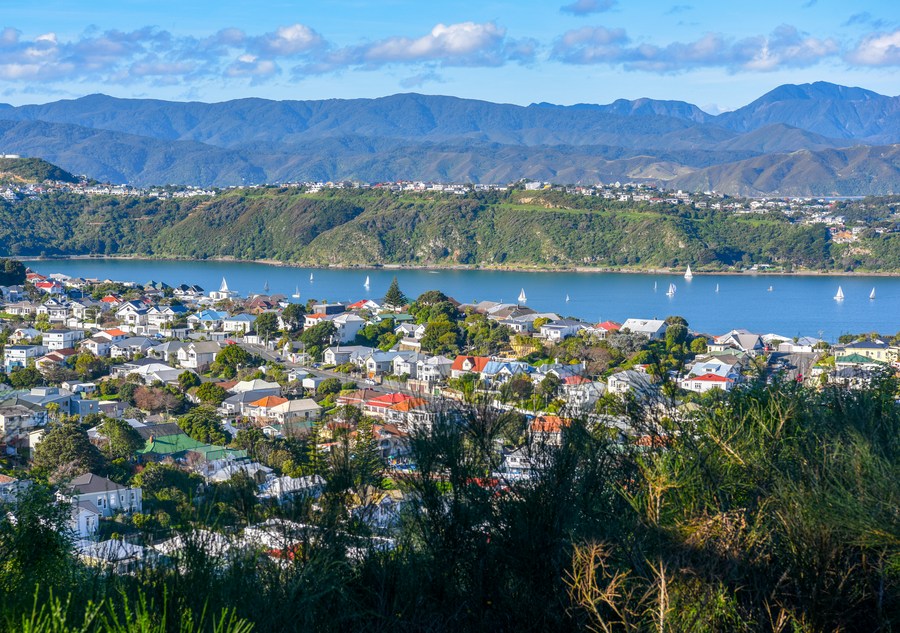
For forty years an anti-nuclear stance has been the cornerstone of New Zealand’s foreign and security policy.
But analysts say that could be about to change as the country’s conservative coalition government led by Prime Minister Christopher Luxon considers whether to drop its anti-nuclear stand and throw its weight behind the AUKUS (Australia United Kingdom and United States) security pact.
Former New Zealand Prime Minister Helen Clark recently warned in an interview of what she called a “profoundly undemocratic” shift in New Zealand's foreign policy.
She said the government was taking the country on a “geopolitical shift which Kiwis didn't vote for”.
On April 11, New Zealand’s Foreign Minister and joint Deputy Prime Minister Winston Peters and US Secretary of State Antony Blinken met and discussed regional security
In an interview with Australian Associated Press, Clark said: “New Zealand has worked carefully on a bipartisan basis for decades to balance its economic interests, democratic values, and nuclear free and independent foreign policy.
“This continues to be possible if politicians keep their nerve and are not drawn into geopolitical games driven from elsewhere.”
In recent weeks there has been a great deal of diplomatic activity between New Zealand, Australia and the US with a focus on AUKUS and breathing new life into the Australia New Zealand US (ANZUS) treaty.
New Zealand's involvement in ANZUS ceased in the mid-1980s, following its anti-nuclear stand.
Grant Duncan, an Auckland-based political scientist, said: “Conservative governments in New Zealand are historically more willing to ally actively with the big western powers, notably the US.”
He told China Daily the current US administration “sees China as a major rival, so they need all the allies they can get in the Pacific.”
He said the New Zealand military has been rundown in recent years to a point where “the country is practically defenseless”.
He said that on the other hand, the risk is that involvement in AUKUS would make New Zealand a potential target.”
On April 11, New Zealand’s Foreign Minister and joint Deputy Prime Minister Winston Peters and US Secretary of State Antony Blinken met and discussed regional security.
In a joint statement they said New Zealand and the US were “working more closely than ever” on “shared challenges”.
The statement highlighted New Zealand’s long-standing membership in the US-led Five Eyes global intelligence network which includes Canada, the UK and Australia, and its status as one of NATO’s four “Indo-Pacific partners” (along with Australia, Japan and South Korea).
Peters and Blinken endorsed the increased US military presence in the Pacific region, saying there were “powerful reasons” for New Zealand to engage with AUKUS and the Quadrilateral Security Dialogue (an alliance between the US, Japan, Australia and India).
New Zealand is seeking to join Pillar II of AUKUS where it will share military technology with the US, Australia and UK.
In an interview with the AAP recently, Luxon said the government had “reasserted our belief” in ANZUS and was “deeply committed” to it.
In 1985, the US suspended its obligations to New Zealand under the 1951 treaty in response to New Zealand’s anti-nuclear laws, which prevented US warships from entering the country’s waters.
Former Australian Prime Minister Scott Morrison has suggested New Zealand should consider abandoning its anti-nuclear policy as it confronts the realities of the heightened geopolitical environment.
In a podcast on April 12 Morrison, considered the AUKUS architect which will see Australia, the US and UK share nuclear secrets and help Australia develop nuclear-powered submarines, said New Zealand would benefit from joining AUKUS.
William Hoverd, director of the Centre for Defense and Security Studies at Massey University in Wellington, New Zealand, said the previous Labour government had expressed “cautious interest” in exploring the option of Pillar Two membership within AUKUS.
“This current government has strengthened that interest,” he told China Daily.
He said the renewed interest in ANZUS is very recent and “we should be careful about making more of claims until we see it mentioned again.”
He said with AUKUS being about a nuclear propulsion supply for Australia, New Zealand will be forced to nuance its policy to remain interoperable with its military ally, Australia.
“Careful nuancing could open a discussion around ANZUS, but this seems a way off and a potential domestic electoral issue as it is unlikely to generate bipartisan support.”


